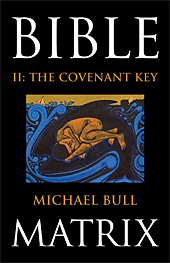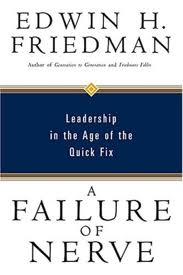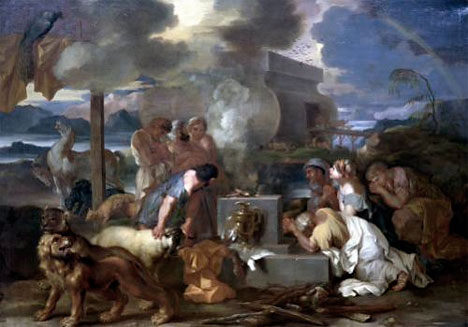Jul
9
2011

Well, here’s Day 6 at last, and the end of Genesis 1 (this is a really bad chapter division!)
Here’s the rest of this series: 1 2 3 4 5
In this final act of Creation, the Lord puts the lords in the palace. As James Jordan observes, ancient kings sat on thrones of beasts. As king, Solomon was enthroned over lions. His priestly government, imaged in the bronze sea, was enthroned over twelve “tribal” sacrificial bulls, carrying the living water to the nations. And in the Revelation, we see the four beasts filled with eyes beneath the throne of God. The animal kingdom was, in some important sense, to become Adam’s throne.
If you’ve read Bible Matrix, you’ll also have seen that Israel’s history follows the Creation Week, with the four Gentile “beast” empires preceding the final “empire of The Man” Christ Jesus (Daniel 7). Using the matrix, we can also see that the initial history in Daniel 1-6 follows the same pattern, with Daniel’s “dominion” over the lions (turning them into “mutes”) situated at Day 6. And, of course, Noah was also enthroned over those “from afar off.” And then, looking at the entire biblical history, at the Last Day, Jesus will be the one fully enthroned over every enemy, with every “beastly” mouth stopped.
Continue reading
Comments Off | tags: Creation Week, Daniel, Genesis, James Jordan, Literary Structure | posted in Bible Matrix, Biblical Theology, Creation
Jul
8
2011
 .
.
All of God’s Covenant quests involve risk. If we attempt to avoid the danger of the mission, and seek results through the false safety of our own wisdom, we are prone to far worse perils.
Continue reading
Comments Off | tags: Covenant Theology | posted in Bible Matrix, Biblical Theology
Jul
7
2011
or The Bible is Smarter than We Are
Robert Alter, on reading the Hebrew Bible, again:
To understand a narrative art so bare of embellishment and explicit commentary, one must be constantly aware of two features: the repeated use of narrative analogy, through which one part of the text provides oblique commentary on another; and the richly expressive function of syntax, which often bears the kind of weight of meaning that, say, imagery does in a novel by Virginia Woolf or analysis in a novel by George Eliot.
Continue reading
Comments Off | tags: Higher Criticism, Literary Structure, Robert Alter | posted in Quotes
Jul
4
2011
 .
.
Edwin H. Friedman writes:
“Living with crisis is a major part of leaders’ lives. The crises come in two major varieties: (1) those that are not of their own making but are imposed on them from outside or within the system; and (2) those that are actually triggered by the leaders through doing precisely what they should be doing.”
(A Failure of Nerve: Leadership in the Age of the Quick Fix, p. 27)
Comments Off | tags: Edwin Friedman, Leadership | posted in Christian Life, Quotes
Jul
2
2011

.
“The modernist sees the Bible not as a revelation from God to man but as a history of certain (arbitrary) thoughts of men about God, wrapped in environment-friendly disposable packaging. Theology becomes a process of wringing the text for these abstract truths. These ‘truths’ are refined out of the ‘flux’ of the Biblical history and defined by their inability to contradict our own thinking.
Continue reading
1 comment | tags: Covenant Theology, Modernism | posted in Bible Matrix, Ethics
Jul
1
2011

The Bible is full of mediators. Creation is full of mediators. Mediation is required for relationship. The Spirit mediates between the Son and the Father because they are distinct.
Continue reading
Comments Off | posted in Christian Life
Jun
30
2011

The Bible Matrix is founded in the structures laid down in Genesis 1, but in no way is the Bible repetitious. James Jordan observes that the Bible is “front-loaded” with an incredible amount of information that we deem mostly obsolete, and yet we don’t understand the Bible because we haven’t taken the time necessary to become familiar with this material. What occurs later always acknowledges what has gone before, not just in content but in form as well, in literary and historical structure.
Continue reading
Comments Off | tags: Jericho, Literary Structure, Robert Alter | posted in Bible Matrix, Quotes
Jun
28
2011
or Holy Smoke

Doug Wilson writes:
“The debate in the early church was not whether the Jews should stop circumcising their sons; it was whether the Gentiles had to start. The decision of the Jerusalem council was not that individual Gentiles did not have to be circumcised. If circumcision had been required of them, it would have obligated them to live as Jews under the Mosaic law — which included the circumcision of all subsequent generations. Circumcision was not being waived for individual Gentiles; circumcision was being waived for Gentiles and their seed. So the Christian church did not insist that Gentiles circumcise their infants — not because they were infants, but because they were Gentile infants” (To a Thousand Generations, pp. 68-69).
Since there is no ex-plicit proof of infant baptism, Pastor Wilson’s self-stated, continuing goal here is to find im-plicit proof. My goal in the following is to show that not only do circumcision and baptism not correspond, but also that the solution to the dispute in this passage he refers to is given in the passage, leaving no room for an im-plicit reference to infant baptism.
Continue reading
16 comments | tags: AD70, Baptism, Circumcision, Covenant Theology, Culture, Doug Wilson, Federal Vision, Genesis, James, James Jordan, John, Literary Structure, Noah, Peter Leithart, Revelation | posted in Bible Matrix, Biblical Theology, Ethics, The Last Days
Jun
27
2011

How can we fix modern worship? Nearly all debate on this subject overlooks what the Bible has to say.
In From Silence to Song, Peter Leithart justifies the practice of finding patterns for our worship in the Levitical rites in the fact that King David did precisely this.
“…sacrificial worship did not cease with the coming of the New Covenant, but was transformed into a “spiritual sacrifice” and “sacrifice of praise.” We now do different things than ancient Israelites did, but those actions have the same meaning as the actions in the Levitical ceremonies.
Continue reading
2 comments | tags: Chronicles, Communion, David, Leviticus, Liturgy, Peter Leithart, Typology, Worship | posted in Biblical Theology, Quotes

































